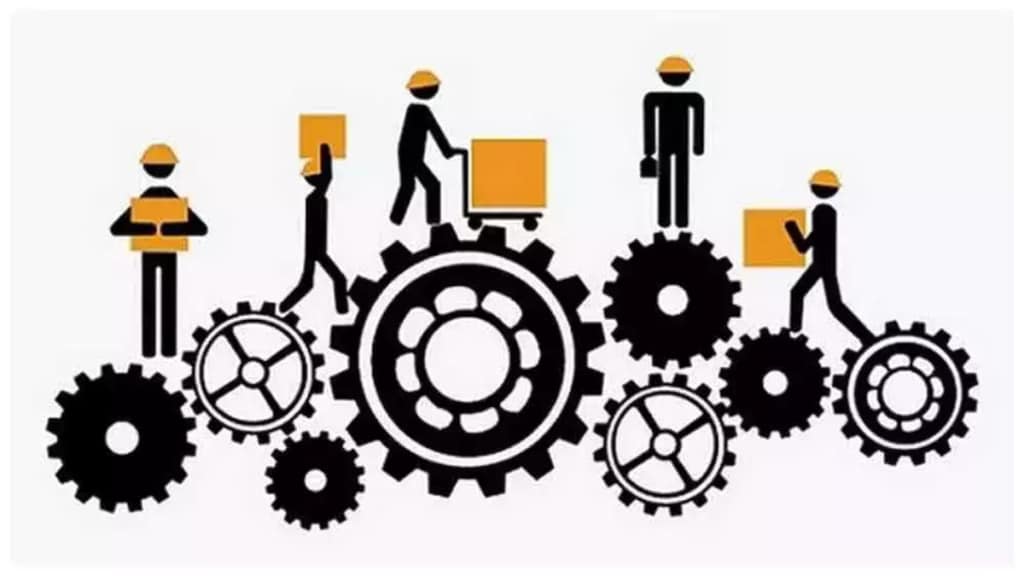By- Siddharth Tandon
Production Linked Incentive (PLI) schemes were introduced in 2020 for a host of sectors for establishing and enhancing manufacturing capabilities in India. Investments under these schemes were also meant to increase both direct and indirect employment generation. Since then, 14 sectors have witnessed the introduction of PLI schemes based on industry patterns and specificities, including schemes across food, pharma, automotive, textiles, telecom and electronics sectors.
These schemes, combined with state incentives and income tax benefits, comprehensively incentivised capital expenditure by corporates. In the past four years, global MNCs as well as Indian corporates have made investments under these schemes. In several sectors, the effects of new investments are now beginning to be visible. However, disbursement under the PLI schemes has been rather slow. This sluggishness in the processing of claims could be due to several factors such as interpretational issues regarding computation of incremental turnover, delay in filing of claims, or certain unforeseen sector-specific issues. While the investments on the ground have been made in most cases, the number of claims filed and processed are proportionately lower. This reflects certain bottlenecks that need to be addressed on priority.
Fast-tracking delayed claims
While in most cases the project management authority (PMA) tries to resolve complexities at its level, it perhaps requires an intervention by another body. An ombudsman-like body may be formulated to address interpretation issues around policies and their guidelines. This would help in fast-tracking delayed claims to ensure that the budget allocated for each scheme is adequately utilised. On the other hand, the PMA could also proactively reach out to each of the successful applicants under the PLI schemes and ask them about their specific feedback or concerns (if any) with respect to the computation or disbursement of claims. Reaching out to the industry would not only fast-track the process but also instil confidence in the industry. This would add significant weight to the Government’s initiative of ease of doing business in India.
Adopting an export-centric approach
So far, the focus of these schemes has been to reduce dependencies on imports by scaling up domestic manufacturing capacities. Now is probably the right time to shift the focus on making India an export hub as well. Additional incentives or some leniency on thresholds in the schemes would boost exports. This could especially attract investments from companies who may not have adequate domestic market in India but have a global customer base which may presently be catered to from other jurisdictions.
Boosting R&D and incentivising green measures
Furthermore, most schemes focus on investments and the resultant incremental turnover; however, incentives for research and development (R&D) activities are absent. The Government should therefore add certain incentives for encouraging R&D activities in the country to further strengthen India’s positioning as a global capability centre hub. Another element that the Government could explore is giving additional incentives for adopting green technologies or undertaking other tangible efforts for reducing carbon emissions for enhanced production capacity. This would tie in well with the Government’s goal to be net zero by 2070 as well as potentially address levies like Carbon Border Adjustment Mechanism by other jurisdictions.
While there is a lot of discussion on rolling out new PLI schemes for sectors such as toys, leather, rolling stock, etc., it is important that the existing schemes function as intended. This would require the alignment of past PLI schemes with industry feedback as well as curating proactive measures to achieve the common goal under these schemes. Partnership with the industry would only speed up the process and additionally give cues to the Government for future policies. If the opportunity is utilised well, Budget 2024-25 could set the tone for notable improvements in the PLI framework.
(Siddharth Tandon, Partner, Indirect Tax, BDO India)
(Disclaimer: Views expressed are personal and do not reflect the official position or policy of Financial Express Online. Reproducing this content without permission is prohibited.)

